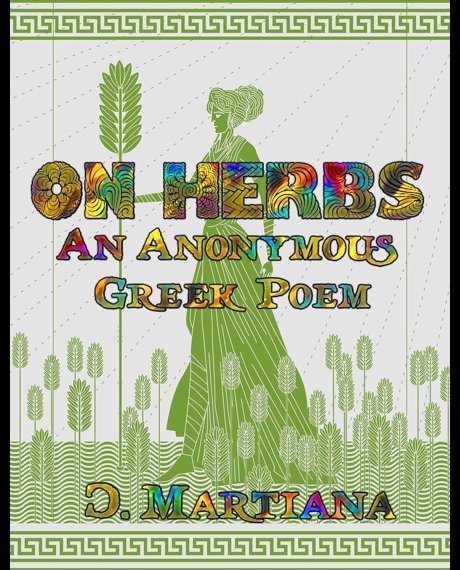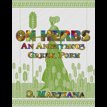On Herbs. An Anonymous Greek Poem
On Herbs. An Anonymous Greek Poem
€ 4,23
It is often said that the father of botany as a science was the ancient Greek philosopher Theophrastus, a student of the famous Aristotle. When one reads his "Historia Plantarum" or "Enquiry into Plants", it is indeed striking how scientific, how technical and sober this work from the 4th century bce is. We are far removed here from the mythical narrative of Homer’s Odyssey, where the god Hermes comes down from heaven and hands Odysseus the wondrous plant moly to protect him against the sorcery of the goddess Circe. Only two short chapters in the nine volumes of the Enquiry even acknowledge ‘superstitious’ ideas of this caliber, and only to roundly dismiss them. One could be easily led to believe that after Theophrastus’ intervention, these superstitions faded away, supplanted by a new and rational outlook, and flourished only among the uneducated and in supposed fringe milieus of esotericists and magicians.
Our poem "On Herbs" belies such a view. Written by some unknown Greek poet in the period of the Roman empire – centuries after Theophrastus – for a mainstream pagan audience, it demonstrates that the ideas that Theophrastus had sought to banish from serious consideration continued to be of interest to the same kind of cultured readership that valued the classical philosophers. Our poet talks about the herb moly, about the divine power of plants, their mythical connections to the gods, the protocol for safely collecting them, and their ability to avert witchcraft and keep away daemons. The memory of this vital strand of ancient Greco-Roman mainstream culture has been repressed and rendered all but inaccessible to modern readers, but recent scholarship has shown that, irrespective of whether one finds the ideas themselves helpful or harmful, no accurate understanding of intellectual history can be gained without being aware of them.
It is often said that the father of botany as a science was the ancient Greek philosopher Theophrastus, a student of the famous Aristotle. When one reads his "Historia Plantarum" or "Enquiry into Plants", it is indeed striking how scientific, how technical and sober this work from the 4th century bce is. We are far removed here from the mythical narrative of Homer’s Odyssey, where the god Hermes comes down from heaven and hands Odysseus the wondrous plant moly to protect him against the sorcery of the goddess Circe. Only two short chapters in the nine volumes of the Enquiry even acknowledge ‘superstitious’ ideas of this caliber, and only to roundly dismiss them. One could be easily led to believe that after Theophrastus’ intervention, these superstitions faded away, supplanted by a new and rational outlook, and flourished only among the uneducated and in supposed fringe milieus of esotericists and magicians.
Our poem "On Herbs" belies such a view. Written by some unknown Greek poet in the period of the Roman empire – centuries after Theophrastus – for a mainstream pagan audience, it demonstrates that the ideas that Theophrastus had sought to banish from serious consideration continued to be of interest to the same kind of cultured readership that valued the classical philosophers. Our poet talks about the herb moly, about the divine power of plants, their mythical connections to the gods, the protocol for safely collecting them, and their ability to avert witchcraft and keep away daemons. The memory of this vital strand of ancient Greco-Roman mainstream culture has been repressed and rendered all but inaccessible to modern readers, but recent scholarship has shown that, irrespective of whether one finds the ideas themselves helpful or harmful, no accurate understanding of intellectual history can be gained without being aware of them.
| Prijs | Verzendkosten | Totaal | |
|---|---|---|---|
€ 4,23 | € 0,00 | € 4,23 |
Alternatieve producten
© 2016 - 2024 aanbiedingchecker

